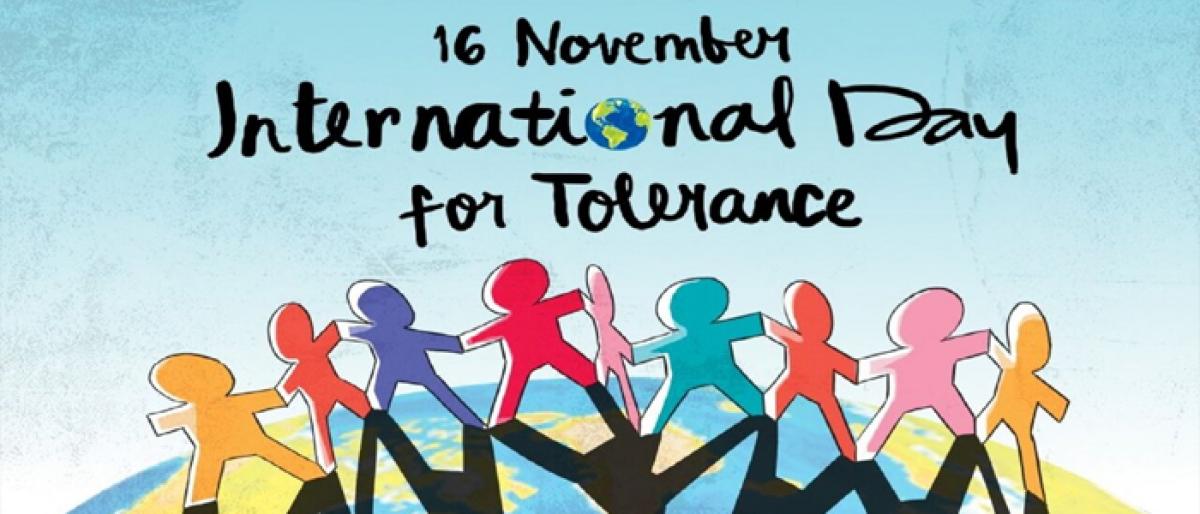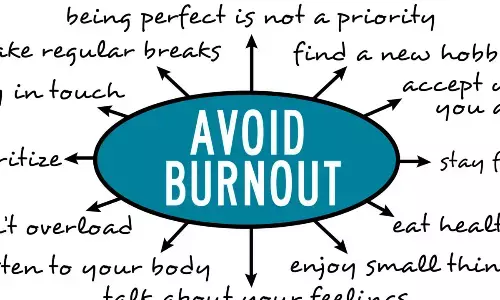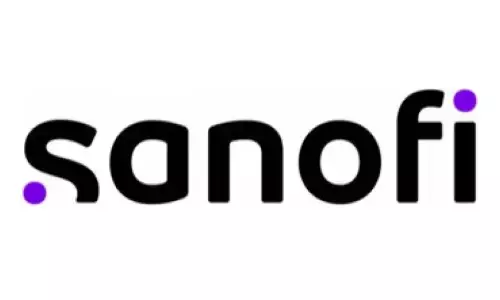Tolerance: A virtue that makes peace possible

Today, the world celebrates the 23rd International Day for Tolerance In this milieu, there arises a need to catch on the passkey to tolerance, while appreciating the very purpose of labelling this day as the International Day for Tolerance
“The highest result of education is tolerance” -Helen Keller
Today, the world celebrates the 23rd International Day for Tolerance. In this milieu, there arises a need to catch on the passkey to tolerance, while appreciating the very purpose of labelling this day as the International Day for Tolerance.
The United Nations General Assembly, in 1996, invited member states to observe the International Day for Tolerance on November 16, every year. The activities for the day take account of both educational establishments and the extensive communities. Procreated by UNESCO, every year, the occasion is to be consecrated to a universal value — an epitome of the community of nations for centuries. This year, the United Nations is hosting a screening of videos from YouTube’s 2018 Creators for Change Impact Project.
What is tolerance?
At a time when globalisation has brought the universe close to each other, on this befitting occasion, it becomes imperative for the renewed evaluation of what tolerance means. Besides, it can also be scanned about how societies could draw from its core meaning.
Tolerance, truly going by definition, is respect, acceptance, and appreciation of the opulent hotchpotch of the various cultures of the world, various forms of expression and ways of being human. Tolerance is the virtue that makes peace possible.
In other words, tolerance implies respect for others and their opinions and beliefs, which may differ from one’s own. Conversely, intolerance is the reluctance to accept views, beliefs or behaviour that is different from one’s own. It infers a disdain for the diversity and pluralism present in society.
Purpose and significance
Predominantly, there are three purposes of the International Day for Tolerance. The first and foremost purpose is to augment the awareness about the dangers associated with intolerance and its insinuations in upholding peace. The second purpose is to promote more tolerance worldwide as tolerance plays a critical role in promoting peace, preventing and extenuating the conflict. Finally, its purpose is to make people more tolerant and nonviolent in their daily lives.
Having many purposes, this day marks significance for the reason that it buoys us to keep up receptive. It is worth mentioning here that respect and appreciation are two of the most important qualities of tolerance. This doesn't mean that we have to agree with each other on everything. However, it indirectly sermonises us to be considerate for other’s feelings. Tolerance is a philosophy most of us live by, which makes us recognise that education is the key to the promotion of peace.
How to foster tolerance?
There is a drive, unquestionably, associated with this occasion. In order to fight against intolerance, there is a prerequisite to learn about respecting and recognising the rights and beliefs of others. The only icebreaker here is — true education that promotes morals and values. Ignorance about cultural, religious and ethnic diversity present in the world can definitely lead to diffidence. With education, however, there can be a better understanding of different customs and beliefs. This ultimately paves a way for greater approval of these wide-ranging traditions.
In the ancient system of education, moral values were a part and parcel of the educational system. As observed by many of the great philosophers, only such an educational system can work well in future that imbibes moral values among the children and youth.
The present-day education system, nevertheless, does not take the significance of moral education into consideration. But in order to effectually indorse tolerance, there is a need to educate the youngsters about the same. Also, they should be taught about their fundamental rights and duties. Of the many stakeholders, schools become the most vital entities in educating the morals and values that ultimately leads to the development of tolerance among the youth. Tolerance is a perfect mechanism which can lead people of dissimilar heritages, cultures, and religions to get their definitive objectives of living together symphonically and peacefully.
Before wrapping up…
Beyond doubt, the concept of tolerance has long animated the world's most powerful democracy — India. However, today, the world as a whole and India, in general, is facing so many problems due to intolerance. At this parlous time, as a global agenda, the inclusion of moral education in the academic curriculum should be considered as the socially viable solution to the insidious problem of intolerance. As mentioned in the beginning, the activities for the day take account of both educational establishments and the extensive communities. Hence, the educational institutes should re-examine to focus on moral education that imparts tolerance.
(Dr Kasturi is an Air Veteran , a mass communicator and an author of more than 10 mass media books)










